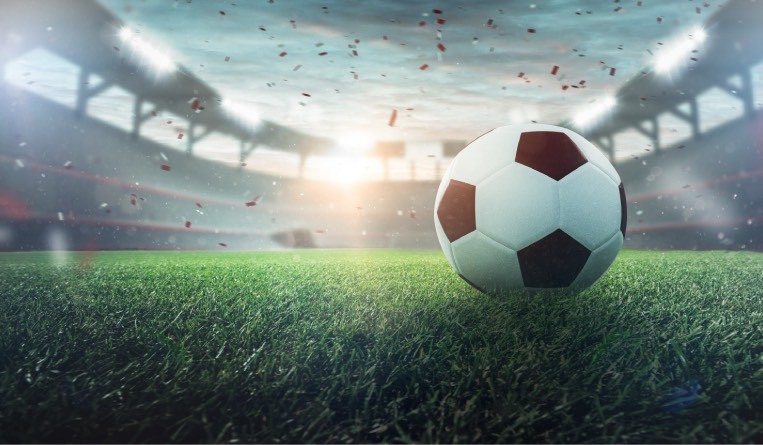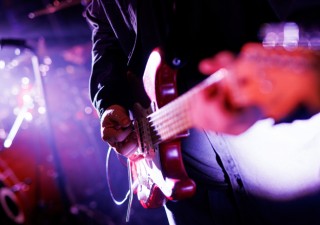With the World Cup’s knockout round set to begin, Espie Angelica A. de Leon looks at another mighty battle in Qatar: FIFA’s fight against IP infringement.
The whole world is agog over 2022 FIFA World Cup now taking place in eight stadiums across five cities in Qatar.
Since its kickoff on November 20, 2022, football fans around the globe have been tuning in to the matches, and every bit of news on one of the world’s grandest sporting events.
However, it isn’t only a battle of the brawn at the World Cup where headers and bicycle kicks are on display.
Away from the sports battlefield that is the football pitch, another kind of battle is being fought. In this war, intellectual property rights are at stake and the IP rights owner has to win the game, all the time.
The game of IP rights
It isn’t easy. Opponents swarm the field and attackers are coming from different directions, aiming to drive the ball to hit the back of the net.
“Past histories have revealed large-scale violation of IP rights through cyberattacks. For example, Russian authorities declared that around 25 million cyberattacks were blocked for the FIFA World Cup 2018. Additionally, many number of scams and fraud attacks are also happening like phishing emails which contain promotional offers, fake FIFA ticket sales, fake live streaming and others,” said Ancy Jacob, an associate at Khurana & Khurana in New Delhi.
To defend its IP rights, the Fédération Internationale de Football Association (FIFA) has been energetically taking its position as goalkeeper.
Like the International Olympic Committee (IOC), football’s international governing body has a breadth of IP assets. These include the official emblem, mascot, corporate mark, slogan in any language version, trophy, poster, word marks such as “FIFA World Cup,” “World Cup,” “Qatar 2022,” and many others. These rights, profiled in a section of FIFA’s website, are protected in various territories including the host country.
In China, FIFA has hundreds of registered trademarks.
“FIFA has always paid heightened attention to its IP protection in China. Upon searching, we find that FIFA has registered a total of 733 trademarks related to the English and Chinese language varieties of ‘FIFA,’ ‘World Cup’ as well as the trophy and mascot. Currently, around 400 of the 733 registrations are validly existing,” said Xie Ruiqiang, a partner at Jin Mao in Shanghai.
Like the IOC, FIFA insists that cities bidding to host the World Cup, put in place IP legislation to adequately protect its rights and those of its commercial partners throughout the tournament.
For the 2022 edition, Qatar passed Law No. 11 of 2021 covering FIFA’s trademarks, copyright and neighbouring rights.
“Significant protection for IP rights of FIFA is secured through ease of registration with Intellectual Property Rights Protection Department and by declaring FIFA’s trademarks as well-known marks, accruing it protection under the Paris Convention of Industrial Property,” said Jacob.
That means as long as FIFA’s trademarks are registered in any of the countries subscribing to the Paris Convention for the Protection of Industrial Property, then these trademarks acquire protection in Qatar as well even if they are not registered there.
Law No. 11 of 2021 also expedites the process of addressing the problem posed by questionable third-party trademarks.
In addition, FIFA issued specific guidelines for IP protection for the 2022 World Cup. It includes policies in connection with print and digital media, social media, mobile and internet services/applications, domain names/URLs and hyperlinks, ads, ticket promotions, merchandise and several more.
“Before and during the World Cup, FIFA launched an around-the-clock surveillance task force aimed at identifying infringements of FIFA’s rights,” said Guo Cai, a partner at Jin Mao in Shanghai.
“FIFA actively kept watch on IP registers across the world to safeguard and preserve the exclusivity of the Word Cup brands. Such a surveillance task force would further monitor the digital space, including online marketplaces and social media, and actively engage with customs authorities on a global level to detect shipments of counterfeit products,” Cai added.
Indeed, what may potentially make things worse are modern technologies, including ecommerce, the dark web and social media. Football fans from all over have been taking to social media to read the latest stories on the matches and players as well as share ads, post videos and their thoughts on the quadrennial event. Social media, with its power to make posts go viral, does reach a large sector of the football fan demographic.
And then there’s ambush marketing.
Ambush marketing is the practice of unofficially associating a brand or trademark with the FIFA World Cup even if the brand is not an official sponsor of the event.
One example is a non-sponsor company greeting a football player competing in the event whom the business sponsors, and showing its trademark in connection with any symbol or word representing the World Cup.
Another example is an advertisement by a non-sponsor that makes it appear it is a World Cup sponsor.
With users sharing ads from non-sponsor business enterprises and making such posts go viral, social media further perpetuates the notion that a particular brand is an official World Cup sponsor when in fact it is not.
A June 2014 research showed that at the 2014 World Cup held in Brazil, almost 40 percent of U.S., UK and Brazilian consumers thought that Pepsi, MasterCard and Nike were official sponsors. They weren’t. Ambush marketing, and social media, just got in the way. After all, the International News Media Association billed the event as the “first proper social media World Cup.”
Ambush marketing and unauthorized broadcasting may be the more serious issues compared to other forms of IP infringement activities in relation to the World Cup, according to Jacob. This is due to the huge revenues accruing from such illegal activities.
“One of the reasons is that with sponsorship being increasingly expensive, unauthorized persons are reaping benefits by hiding under a veil, which results in tarnishing the goodwill of the real sponsor as well as the gain of unscrupulous profits. The original sponsor, who paid a heavy amount for the event, will not be able to enjoy the intended advantage and loses identity in the market,” explained Jacob.
According to SportBusiness Sponsorship, enterprises targeting to become World Cup partners pay between US$9 million and US$23 million to become one.
“Unauthorized streaming services and websites for pirated sports broadcasting, of which there are thousands, is another major problem,” said Jacob. “Ubiquitous and cheap ‘plug-and-play’ set-top boxes are providing free access to sports broadcasts at the click of a mouse. The fast proliferation of broadcast piracy is a major concern, as it is stunting the growth of subscription fees and advertising, estimated at dozens of billions of dollars each year.”
Nonetheless, the surveillance task force has scored several points.
“In June 2022, multiple Chinese customs offices, including Zhejiang, Fujian and Shanghai, reported identification and confiscation of merchandises that infringed FIFA’s IP rights pertaining to the World Cup Qatar 2022, which represents part of the global IP protection surveillance/enforcement program,” shared Ruiqiang.
Back in December 2021, authorities in Qatar raided a place where perfume was being made. The perfume products were supposed to be placed in containers bearing the World Cup brand, which was unauthorized.
In May 2022, five persons were arrested in Qatar for promoting clothes showing the FIFA World Cup Qatar 2022 logo without permission.
Intensified surveillance of designated Commercial Restriction Areas (CRAs) around the eight World Cup stadiums and other event sites is also being carried out. The concept of CRA was introduced in Law No. 10 of 2021 which Qatar also enacted in July 2021 for its hosting of the World Cup. A CRA refers to the area adjacent to the stadium where matches are being played or other events location with a radius not exceeding 2 kilometers. In these areas, commercial activities are not allowed on days when matches are taking place and the day before, unless FIFA permitted such activity.
Also, an official email address for aggrieved parties in an alleged infringement has been set up for faster reporting and response.
“FIFA’s IP protection programs around the World Cup, based upon active surveillance measure, proved to be effective,” said Cai.
Sports and IP rights violations: The Asian experience
Customs authorities in China may have confiscated merchandise infringing FIFA’s IP rights in June. But, unauthorized broadcasting in its various forms is the biggest problem in China, according to Cai.
“China Central Television (CCTV) is the exclusive media rights holder for the FIFA World Cup Qatar 2022, which issued an official statement days before the opening of the World Cup that only six other Chinese platforms had been duly sub-licensed by CCTV to transmit World Cup related contents,” shared Cai. “However, seeing World Cup matches on other unauthorized platforms remains common and it is certainly a challenge to surveil or take down such authorized content on a timely and comprehensive basis.”
China’s domestic soccer league, the Chinese Football Association Super League, also falls prey to such unlawful activities. Revenues generated from paid subscription account for less than 10 percent of the overall revenue. In more mature markets, revenues from paid subscription reach 50 percent of the total earnings.
“While in mature markets governments and key stakeholders like Amazon, eBay, and Facebook are taking steps to combat the threat posed by piracy, emerging economies are still struggling to define the scope of their copyright laws and are unable to take swift action to shut down sources of pirated content,” said Jacob.
In Asia generally, infringement of IP rights in sports is rampant.
Recently in Star India Pvt v. MHDTV World & Ors., the Delhi High Court restrained 11 rogue websites from streaming and broadcasting matches of the Asia Cup 2022, a regional cricket tournament held from August 27-September 11 in the United Arab Emirates. The said rogue websites regularly rebroadcast the live matches, the global rights to which are held by Star India, which filed the suit.
Meanwhile, the Asian Football Confederation (AFC) has appointed experts to better protect its broadcast and commercial partners’ rights.
“AFC has acted as part of a coalition against the pirate broadcasters ‘beoutQ’ and against those who attempted to ‘ambush’ marketing rights at the AFC Asian Cup UAE 2019. However, this is always not possible.” Jacob noted. “So sometimes other remedies are also pursued.”
Unlike in the U.S. and Europe, IP laws and their enforcement are generally weaker in Asian jurisdictions. The EU in particular has a unified mechanism for IPR enforcement. In comparison, Southeast Asian countries have fragmented IPR enforcement laws and regulations.
Additionally, some countries in Southeast Asia are not yet party to the Madrid System. Among them are Indonesia, Malaysia, Myanmar and Thailand.
It is also important to note that a sizeable chunk of counterfeit products existing in the global market come from China and Hong Kong. This is indicated in seizure data from the U.S., EU and Japanese customs authorities.
“China and Hong Kong together were responsible for more than 86 percent of the import of counterfeit goods into the world’s three largest markets,” Jacob revealed, “with a shared market value of nearly US$2 trillion each year.”
“The pitfalls in the enforcement of rights are one of the reasons for rampant violation of FIFA’s IP rights,” she added. “Though the state of protection is slowly improving, there is still a long way to match the level of protection provided in developed countries.”
IP lessons from the World Cup
Aside from the AFC, Asia is also host to other regional sporting meets including the multi-sport Asian Games and Southeast Asian Games.
Hosts and organizers of such events ought to learn a thing or two from how FIFA is managing ang protecting its IP rights and that of its partners.
“I think Asian countries could learn a lot from FIFA’s very robust, adaptive, comprehensive rule-making ability and global coordination ability in terms of enforcement,” said Cai. “IP protection of international sporting events would not have teeth without coordinated enforcement regime.”
Jacob agrees. For her, IP registration is not enough. Registration should be followed up with efficient ways of enforcing such rights. That is the key lesson.
“Nibbing the roots of violation right at the time of occurrence in a way that it is not prolonged is to be taken care of. Though legislative enactment is common practice in case for hosting nations, enforcement mechanisms is where countries usually lag behind. The IP laws should provide sufficient protection and efficacious remedy quickly in case of infringement, modelling the example set by Qatar 2022 World Cup,” she explained.
As for copyright violations, Jacob notes these may be curbed by taking more cautious and simpler procedures to ensure protection.
Violations of IP rights are taking place around the world and will continue to take place with the availability of modern technologies. Hence, FIFA and its partners will continue to be hounded by unscrupulous individuals wanting to capitalize on the popularity of the World Cup by infringing on their IP.
That being said, FIFA has the ball in its court. With its portfolio of IP assets, policies, regulations and protection programs, the football body is definitely doing its part as the goalie. Its defense may not be solid all the time and certain jurisdictions may have weak IP legal frameworks. But for sure, FIFA won’t allow its opponents to have a free kick.







